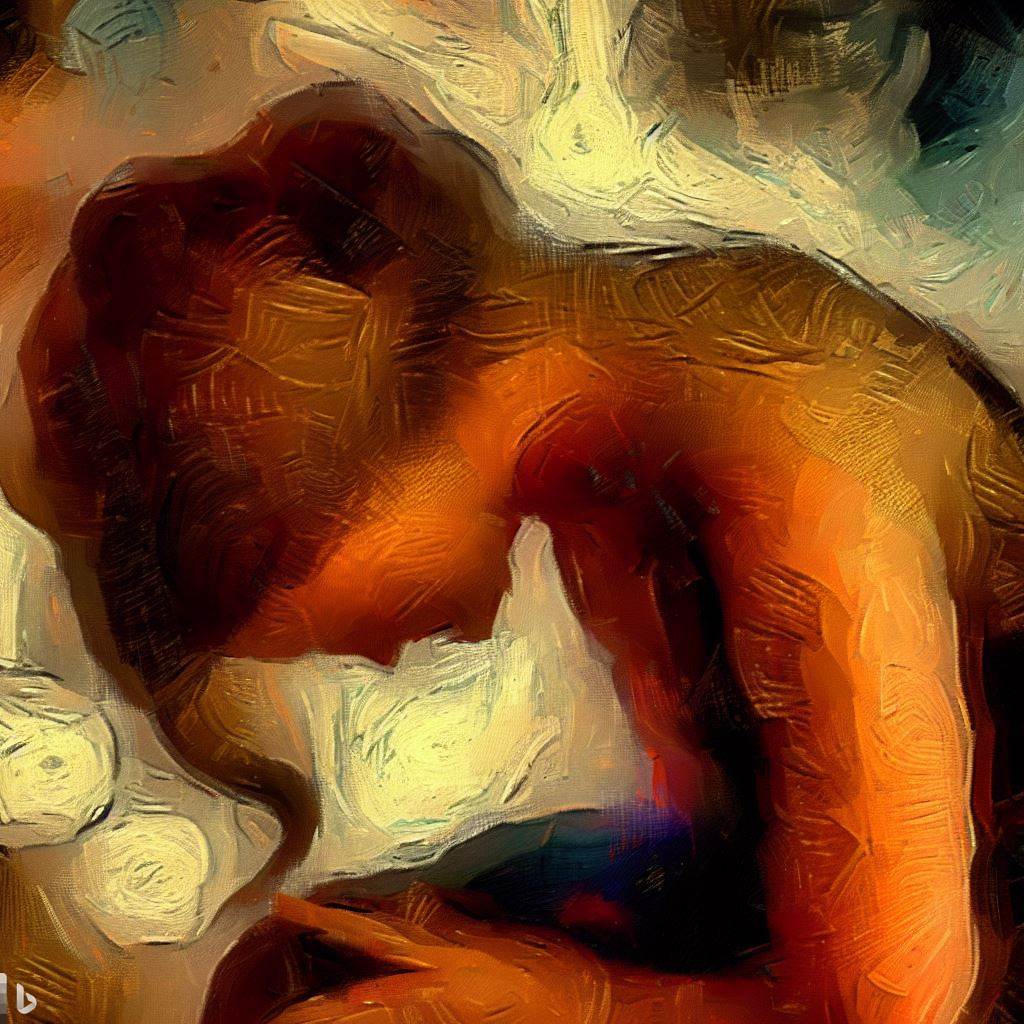Introduction
Gout, a form of inflammatory arthritis, primarily affects the feet and toes. It occurs when uric acid accumulates in the body, leading to the formation of crystals and causing pain and inflammation.
While various factors contribute to the development of gout, including dehydration, high-purine diets, and the consumption of sugary or alcoholic drinks, this article will focus on the relationship between alcohol and gout.
We will explore how alcohol affects uric acid levels, triggers flare-ups, and discuss the importance of moderation and making informed choices.
If you have gout, consuming alcohol can have an impact on your symptoms and overall health. Gout is a condition related to the metabolism of uric acid, which accumulates in the body and forms crystals in the joints, causing pain and inflammation.
Beer, wine, and vodka are different types of alcohol and can affect the body in various ways. In the case of gout, it is generally recommended to limit alcohol consumption or even avoid it completely.
There are several reasons why alcohol can have a negative impact on gout.
We will expand on the subject of the negative impact of alcohol on gout in the following article.
Understanding Uric Acid and Gout Linkage
Increase in uric acid levels
Uric acid is a byproduct of purines, chemical compounds found in certain foods like red meat and seafood. When uric acid is not effectively eliminated from the body, it can form crystals in the kidneys and joints, leading to gout symptoms.
Approximately 8 million adults in the United States suffer from gout, making it essential to address potential triggers.
Alcohol, especially beer and vodka, contains purines that, during metabolism in the body, convert into uric acid.
Consumption of alcohol can lead to an increase in uric acid levels in the blood, which, in turn, can exacerbate gout symptoms.

Alcohol and Uric Acid Levels
Alcohol is a source of purines, and when metabolized, it produces uric acid.
Furthermore, alcohol affects the excretion rate of uric acid, potentially leading to increased levels in the blood. Different types of alcohol have varying purine content, with spirits generally having the lowest and regular beer the highest.
Research suggests that both beer and liquor can elevate blood uric acid levels, with beer playing a more significant role. Studies indicate that high alcohol intake is associated with an increased risk of hyperuricemia, particularly in men.
Alcohol as a Trigger for Gout Flare-ups
While not everyone who drinks alcohol will experience hyperuricemia or gout, research suggests a potential connection.
Studies have shown that alcohol intake can be a trigger for acute gout attacks.
Some individuals report alcohol intake as a significant trigger, surpassing triggers like red meat consumption or dehydration.
The association between alcohol and gout flare-ups appears to be more pronounced in individuals with early-onset gout.
Dehydration
Alcohol is classified as a diuretic, which means it increases urine production and subsequently leads to fluid loss.
When alcohol is consumed, it inhibits the release of an anti-diuretic hormone called vasopressin, which normally helps the body reabsorb water and reduce urine output. Without sufficient vasopressin, the kidneys produce more urine, resulting in increased fluid excretion and dehydration.
Alcohol’s dehydrating effect stems from its impact on the body’s water balance. As alcohol is processed in the liver, it requires water for metabolism.
This process diverts water away from other essential bodily functions, including maintaining proper hydration. Additionally, alcohol can lead to increased perspiration and contribute to fluid loss through sweating, further exacerbating dehydration.
Dehydration can manifest in various ways, and the severity of symptoms depends on the extent of fluid loss.
Mild dehydration may cause symptoms such as increased thirst, dry mouth, fatigue, and decreased urine output.
Moderate to severe dehydration can lead to dizziness, rapid heartbeat, confusion, muscle cramps, and even fainting.
Prolonged dehydration can have detrimental effects on the body, including impaired organ function, electrolyte imbalances, and in severe cases, heatstroke or kidney damage.
This can lead to dehydration in the body, and the concentration of uric acid in the urine may rise. Higher uric acid concentration increases the risk of gout attacks.
Overweight
Being overweight or obese increases the risk of developing gout and exacerbates its symptoms. Excess body weight is associated with higher levels of uric acid in the blood.
The excess fat tissue promotes the production of substances called adipokines, which can impair the body’s ability to eliminate uric acid efficiently.
Consequently, elevated uric acid levels increase the likelihood of crystal formation and gout flare-ups.
Mechanisms Behind the Link
Several mechanisms contribute to the connection between overweight/obesity and gout.
Firstly, adipose tissue produces inflammatory substances that can trigger inflammation in the joints, intensifying gout symptoms.
Secondly, obesity is often accompanied by other health conditions such as high blood pressure, diabetes, and metabolic syndrome, all of which further raise the risk of developing gout.
Some types of alcohol, especially beer, can be high in calories and contribute to weight gain. Excess weight is a risk factor for worsening gout symptoms as it increases the burden on the joints.
Negative Drug interactions
Certain medications can affect uric acid levels, either by increasing its production or impairing its elimination from the body.
These drug interactions can lead to elevated uric acid levels and trigger gout attacks or worsen existing symptoms.
Common Medications with Potential Negative Interactions:
When managing a condition like gout, it’s essential to be aware of all the factors that can influence its progression and symptoms.
While diet, lifestyle choices, and overall health play a crucial role, it’s equally important to understand the potential impact of medications on gout management.
Certain medications have the potential to interact negatively with gout, either by increasing uric acid levels or exacerbating gout symptoms.
In this blog post, we will explore common medications with potential negative interactions in the context of gout, shedding light on their effects and providing valuable insights for individuals seeking to effectively manage their gout symptoms while on medication.
By understanding these potential interactions, you can take proactive steps to ensure that your treatment plan aligns with your gout management goals and minimizes any adverse effects that medications may have on your condition.
Diuretics
Diuretics, commonly prescribed for conditions like high blood pressure or heart failure, increase urine production and can raise uric acid levels.
Thiazide diuretics, in particular, are known to contribute to hyperuricemia (high uric acid levels) and gout flares.
Aspirin
While low-dose aspirin is generally safe for most people, high doses can interfere with uric acid excretion, potentially triggering gout attacks.
Cyclosporine
This immunosuppressant drug, often used in organ transplant recipients or to treat certain autoimmune diseases, can increase uric acid levels and worsen gout symptoms.
Niacin
High doses of niacin, a form of vitamin B3, can raise uric acid levels and may lead to gout flares.
Levodopa
Levodopa, a medication commonly prescribed for Parkinson’s disease, can increase uric acid production, potentially contributing to gout development or exacerbation.

The TakeAway
Are you tired of dealing with the excruciating pain and inflammation caused by gout? Well, here’s an important piece of information: your alcohol consumption might be aggravating your condition. Yes, you heard it right. Gout, a notorious form of arthritis, can be significantly influenced by what you choose to drink. Let’s dive deeper into this fascinating yet crucial connection between gout and alcohol.
Alcohol, while seemingly enjoyable, has some undesirable effects on your body, especially if you’re battling gout. Firstly, it acts as a diuretic, dehydrating your system and wreaking havoc on your joints. This dehydration factor alone can lead to a dangerous buildup of uric acid, the primary culprit behind those dreaded gout attacks. But that’s not all—alcohol also contains purines, chemical compounds that contribute to increased uric acid production. The combination of dehydrating effects and purine content creates a perfect storm that can trigger gout flare-ups and intensify your suffering.
Interestingly, not all alcoholic beverages are created equal when it comes to their impact on gout. Different types of alcohol have varying levels of purines, with beer reigning as one of the major offenders. Beer enthusiasts, beware! This beloved beverage tends to have particularly high purine content, making it a potential enemy for those grappling with gout. Wine and spirits, on the other hand, have comparatively lower purine levels, but that doesn’t mean they get a free pass. Any form of alcohol can still exacerbate gout symptoms if consumed excessively or without caution.
So, what’s the solution for individuals with gout who simply can’t resist the occasional drink? Moderation is key. Finding a balance between enjoying a social drink and managing your gout symptoms is crucial. It’s important to keep in mind that staying hydrated is a non-negotiable aspect of managing gout, as it helps flush out excess uric acid from your system. Hydration is your secret weapon against the dehydrating effects of alcohol and its potential to worsen gout.
Furthermore, considering your overall purine intake from various sources is essential. While alcohol plays a significant role, other foods and beverages, such as red meat and seafood, can also contribute to high uric acid levels. Balancing your diet and making conscious choices about what you consume can significantly impact the frequency and severity of your gout attacks.
In conclusion, managing your alcohol consumption is an integral part of successfully managing gout. By practicing moderation, staying hydrated, and being mindful of your purine intake from all sources, you can regain control over your gout symptoms and minimize the impact of alcohol on your overall well-being. Remember, you don’t have to give up all the pleasures in life, but understanding the connection between gout and alcohol empowers you to make informed choices that will help you live a healthier, happier life, free from the shackles of gout’s torment.

![Gout and drinking alcohol [Expert advice]](https://sacredtreatments.com/wp-content/uploads/2023/06/363fbad7-338f-4ba3-87a7-a127e3ba62eb-768x768.jpg)